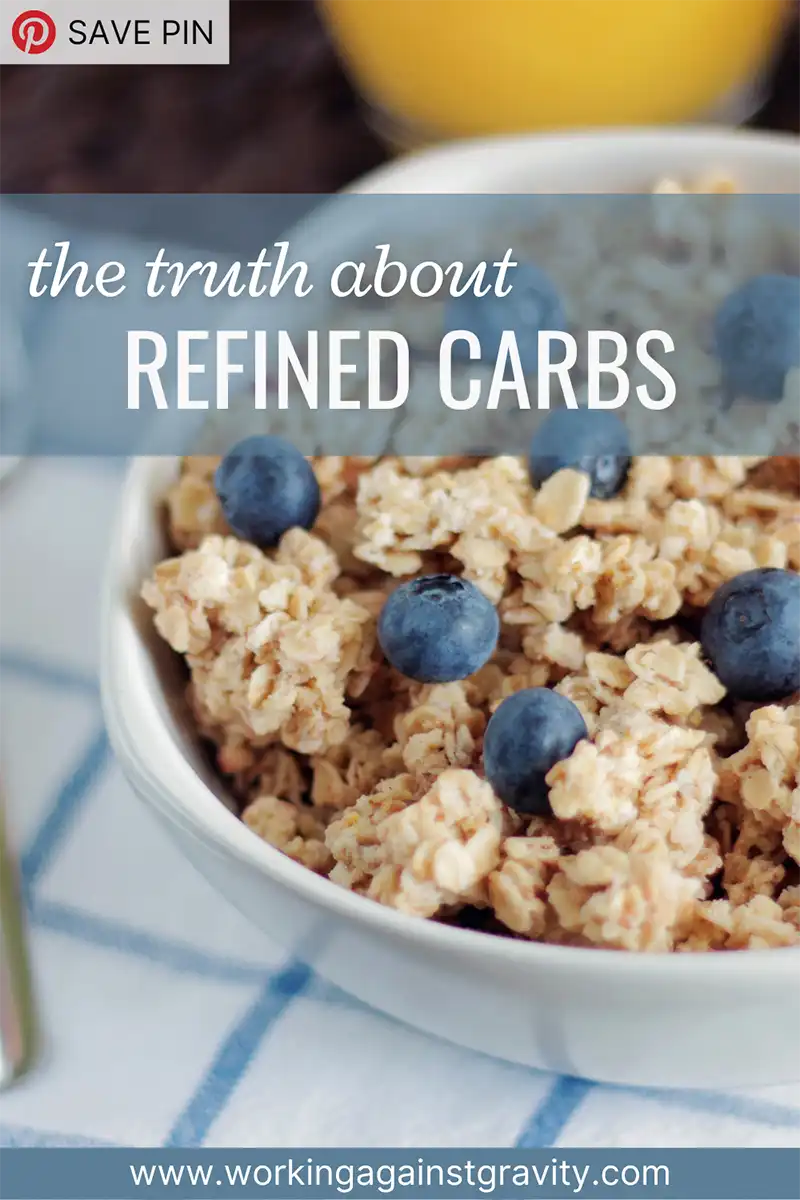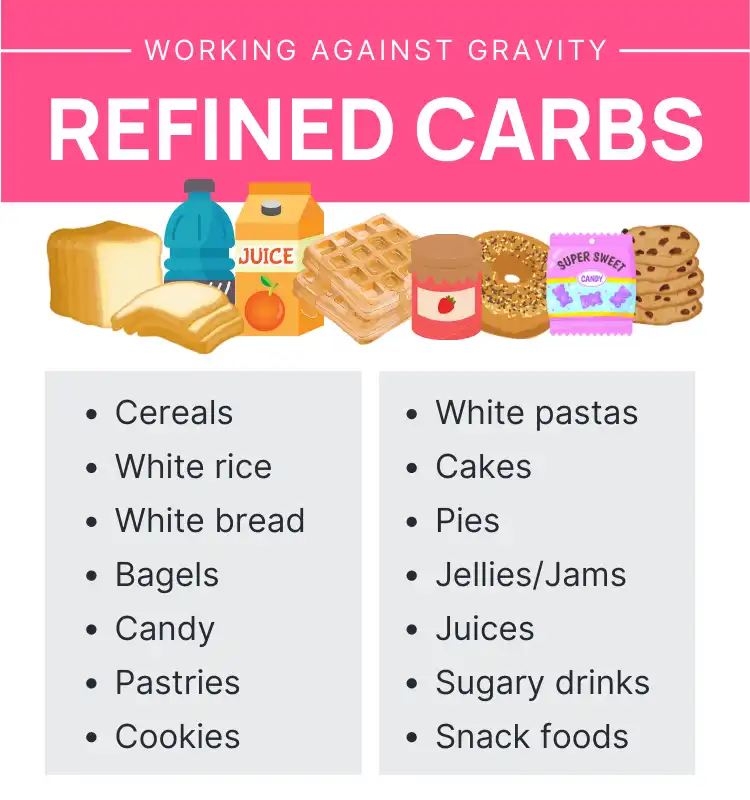There’s a lot of buzz surrounding carbs in the nutrition and fitness world. Some swear up and down that all carbs are the enemy, while others say that it depends on the type of carb, your goals, and your training. But before we dive into refined carbohydrates, let’s take one step back and talk about carbohydrates as a whole.

What are Refined Carbs?
Carbohydrates, protein, and fat are all macronutrients, and each macro has a different purpose in your body. The role of carbs is to provide you with your most readily available source of energy. After you eat carbs, they are stored in your muscles as glycogen, and it’s this energy reserve that your body pulls from when it needs to:
-
Maintain basic bodily functions such as breathing and thinking
-
Move around in your day-to-day life
Advertisement
-
Perform in an intense training session
-
Recover when muscles have undergone high levels of activity
Some carbs are also full of vitamins and minerals that help support your immune system. These vitamins and minerals are known as micronutrients.
What Makes Refined Carbs Different?
Other carbs do not provide the added benefits of micronutrients because they have had them stripped away along with other natural ingredients. This is where we get the term refined carbs.
Advertisement
Sometimes referred to as “processed carbohydrates” or “simple carbohydrates,” these starch-based foods include simple sugars, processed sugars, and refined grains and generally share some common characteristics:
Low levels of nutrition: In the refining process, the most nutritious parts of the whole grain are removed. This includes micronutrients, which are crucial in keeping the body functioning optimally.
Calorie-dense: Once the refining process is complete, all that is left in the food is simple carbs (sugar). Sugar is very calorie dense and has no intrinsic micro-nutritional value.
Low levels of fiber: Once a grain has been refined, much of the natural fiber has been removed, along with all of the benefits it would normally bring to the table. Fiber is instrumental in satiety, heart health, proper digestion, and increasing the absorption of essential nutrients from food.
Higher glycemic index: The glycemic index ranks carbohydrate-rich foods by how quickly and significantly they raise your blood sugar levels. “Blood sugar” is another way of saying “blood glucose levels.” Low GI foods will absorb more slowly into your body and will have a smaller effect on blood glucose levels and insulin response. This means your energy will be more stable throughout the day. High GI foods, including refined carbs, will spike your blood sugar quickly and often cause that “sugar crash” later on.
Advertisement
Examples of Refined Carbs
Refined carbs are in a lot of food products that have gone through some kind of processing. This includes a large portion of “packaged food” (think the inside aisles of the grocery store). While this list is far from exhaustive, it should still provide some common themes to be on the lookout for.
-
Table sugar
-
Brown sugar
-
White flour
-
White bread
Advertisement
-
White rice
-
Full-sugar soft drinks
-
High-sugar cereals
-
Ice cream
-
Baked goods
Advertisement
-
Candy
-
Corn syrup and high-fructose corn syrup

Are Refined Carbs Bad?
At WAG, we don’t believe in “good” vs “bad” food. You can enjoy most things in moderation, and that includes refined carbohydrates. But like with any sustainable, balanced approach to nutrition, food quality needs to be taken into consideration when choosing what to eat each day.
So what’s the big takeaway? Focus on whole foods as much as possible, and though they don’t need to be completely avoided, refined carbs should be the exception rather than the rule when it comes to how you fill your daily macro requirements.
Advertisement








